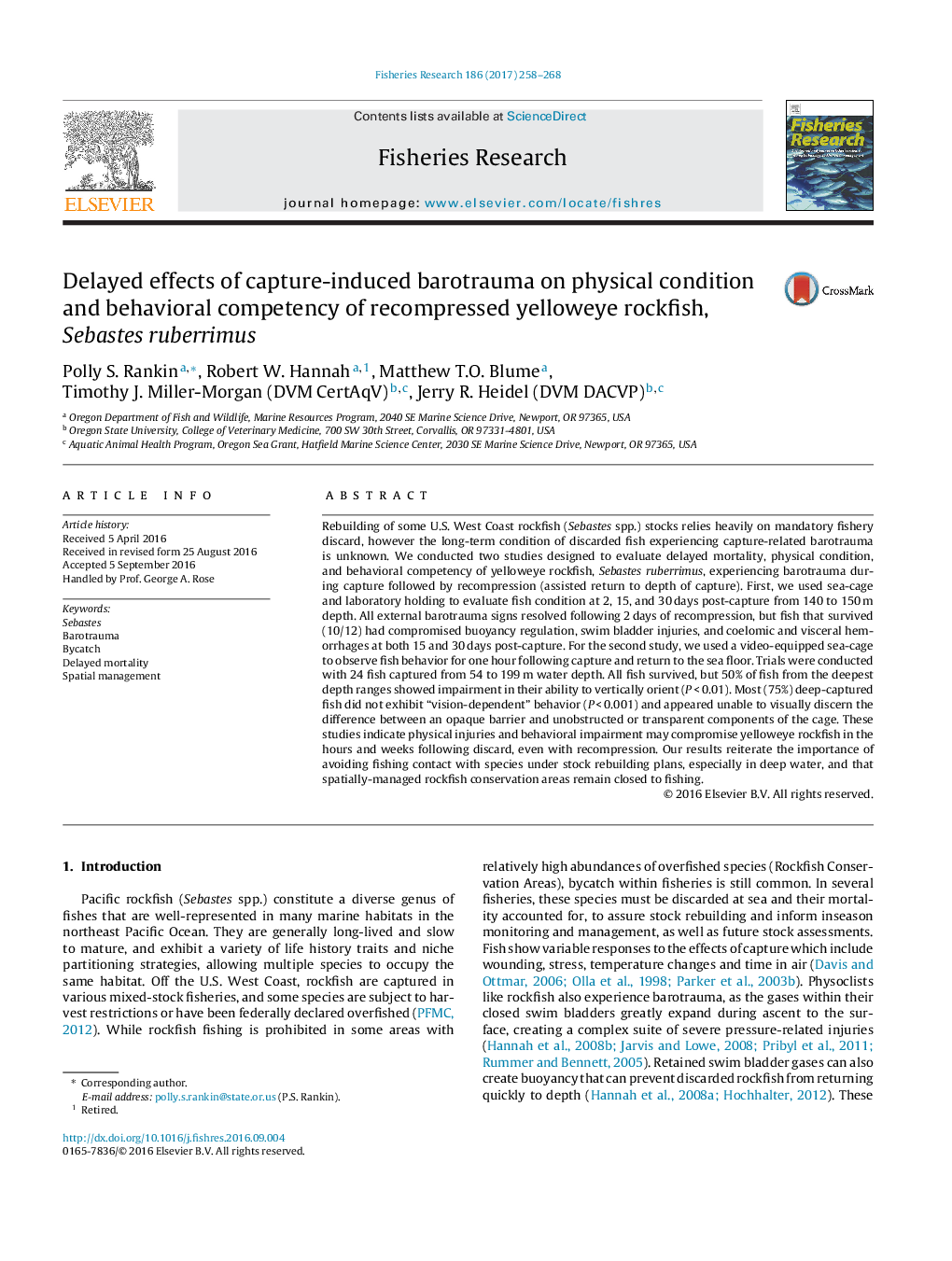| کد مقاله | کد نشریه | سال انتشار | مقاله انگلیسی | نسخه تمام متن |
|---|---|---|---|---|
| 4542620 | 1413079 | 2017 | 11 صفحه PDF | دانلود رایگان |
• Capture-induced barotrauma and recompression has delayed effects in S. ruberrimus.
• Deep-captured fish sustain severe injuries evident 15 and 30 days post-recompression.
• Longer-term effects are swim bladder injury, loss of buoyancy control, hemorrhaging.
• Short-term behavior effects are loss of vertical orientation and visual impairment.
• Spatially-managed rockfish conservation areas should remain closed to fishing.
Rebuilding of some U.S. West Coast rockfish (Sebastes spp.) stocks relies heavily on mandatory fishery discard, however the long-term condition of discarded fish experiencing capture-related barotrauma is unknown. We conducted two studies designed to evaluate delayed mortality, physical condition, and behavioral competency of yelloweye rockfish, Sebastes ruberrimus, experiencing barotrauma during capture followed by recompression (assisted return to depth of capture). First, we used sea-cage and laboratory holding to evaluate fish condition at 2, 15, and 30 days post-capture from 140 to 150 m depth. All external barotrauma signs resolved following 2 days of recompression, but fish that survived (10/12) had compromised buoyancy regulation, swim bladder injuries, and coelomic and visceral hemorrhages at both 15 and 30 days post-capture. For the second study, we used a video-equipped sea-cage to observe fish behavior for one hour following capture and return to the sea floor. Trials were conducted with 24 fish captured from 54 to 199 m water depth. All fish survived, but 50% of fish from the deepest depth ranges showed impairment in their ability to vertically orient (P < 0.01). Most (75%) deep-captured fish did not exhibit “vision-dependent” behavior (P < 0.001) and appeared unable to visually discern the difference between an opaque barrier and unobstructed or transparent components of the cage. These studies indicate physical injuries and behavioral impairment may compromise yelloweye rockfish in the hours and weeks following discard, even with recompression. Our results reiterate the importance of avoiding fishing contact with species under stock rebuilding plans, especially in deep water, and that spatially-managed rockfish conservation areas remain closed to fishing.
Journal: Fisheries Research - Volume 186, Part 1, February 2017, Pages 258–268
